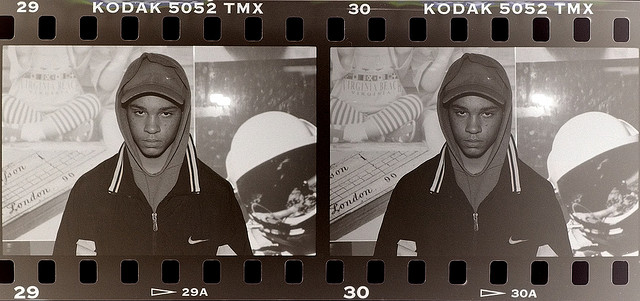Claudia Rankine’s fifth book of poetry is about racism, yes. But that is like saying Moby Dick is about a whale. Rarely do polemical works of poetry connect as hard and as emotionally as Citizen does. It is a precise, complex, clear-eyed, and masterful work of art.
Citizen begins by chronicling everyday racial slights that Rankine and her friends endure—the verbal micro-aggressions that accrue like a thousand paper cuts to bleed one’s soul to death. Rankine moves on to examine cultural flash points, analyzing the weight Serena Williams carries, the rage of Zinedine Zidane, the horror of black people brutalized (Trayvon Martin, lynched men of mid-twentieth century, victims of stop-and-frisk policing) and how these events are portrayed in the media and society as whole. Throughout, Rankine grapples with how other artists have confronted racism writ large and small, and what it means to be a creative black person in a white-dominated world.
Look closely, she is telling us. This is what this nanosecond of racism is like, this is how this nanosecond of racism feels.
Much of the slim book’s power, right from the first line, lies in Rankine’s use of the second person. “When you are alone and too tired even to turn on any of your devices, you let yourself linger in a past stacked among your pillows.” The “you” is Rankine, but the “you” is also all black people, past and present, and also the reader, and also any citizen who lives in our racist world. We, the reader, are implicated. And also drawn in, immediately. Rankine slows the world down and achieves Robert Frost’s goal of “a momentary stay against confusion.” Look closely, she is telling us. This is what this nanosecond of racism is like, this is how this nanosecond of racism feels.
Language is what wounds Rankine/you/us over and over.
“You are in the dark, in the car, watching the black-tarred street being swallowed by speed; he tells you his dean is making him hire a person of color when there are so many great writers out there.”
Language is what wounds Rankine/you/us over and over. “You are reminded that a friend once told you there exists a medical term—John Henryism—for people exposed to stresses stemming from racism. They achieve themselves to death trying to dodge the buildup of erasure.” But Rankine here uses language to stop the erasure, to fill in the white spaces. With text and images against stark white backdrops (Rankine reproduces and references Glenn Ligon’s 1990 text painting Untitled (I Feel Most Colored When I Am Thrown Against a Sharp White Background)), Rankine stakes out a modern Song of Myself, not with Whitman’s “barbaric yaup” but with precisely-crafted lyricism:
You are you even before you
grow into understanding you
are not anyone, worthless,
not worth you.
Even as your own weight insists
you are here, fighting off
the weight of nonexistence.
While Citizen feels very immediate and of our time, it also contains the weight of our history. Even the cover, a black hoodie disembodied from the rest of the sweatshirt, the strings dangling against the bright white background, feels like it is a direct comment on the murder of Trayvon Martin. Yet the image is of David Hammons’s 1993 installation In The Hood.
Here’s who should read this book: politicians who gerrymander, politicians who restrict voter’s rights, politicians who use coded racist language, pundits, columnists, shouters, and haters. Also anyone who has felt the sting of subtle racism, anyone who has perpetrated it, and anyone who has witnessed the barely perceptible every day erasure all around us. In other words, it should be read by everyone. Citizen will open your eyes, and will make you see the world anew. As only great art can.
